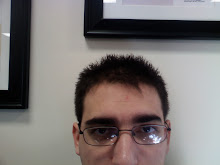... Even if that were somehow entirely randomly possible, there would need to be more than just one type of cell. After all, there are plant cells, and then there are animal cells. Both are similar in some respects, but ultimately they are extremely different.
Next the step from single celled organism to structured simple organisms multiplies the problem exponentially. Even just by multiplying itself and somehow the multiplied cells attaching themselves to each other in a cooperative fassion (as opposed to fighting and ultimately destroying each other) still results in the organism that is just a random blob with no real structure. In order for these randomly formed cells that somehow attached themselves to each other to work together to create even a simple structure would require some sort of a design or plan. In order for there to be a design and a plan, there has to be a designer/planner. Unfortuantely, this is something that this randomly formed simple single celled organism is just not capable of on it's own.
This doesn't even touch on the exponential complexaties of even a simple complex organism. As the organism becomes complex it begins to need specialized cells for things like a circulatory system and other systems that must all work perfectly in conjunction with one another in order for the organism to not fail from the onset.




1 comment:
Hi, JC. It appears that you are unaware of the many steps before a complete cell, which include: (this is not a complete list) amino acids, proteins, prions (like the one which causes mad cow disease), and viruses. Similarly, you seem unaware of steps between one-celled organisms and complex multicellular ones, which include things like colonies and symbiotes.
Evolution is really a very sound theory. I'd suggest really learning about it before you decide to dismiss it. I'm not trying to be rude, but it really appears that you don't believe in it because you don't know enough about biology. When people complain about "missing steps" in evolution, it's usually because they're personally unaware of the organisms which fill those gaps.
Post a Comment